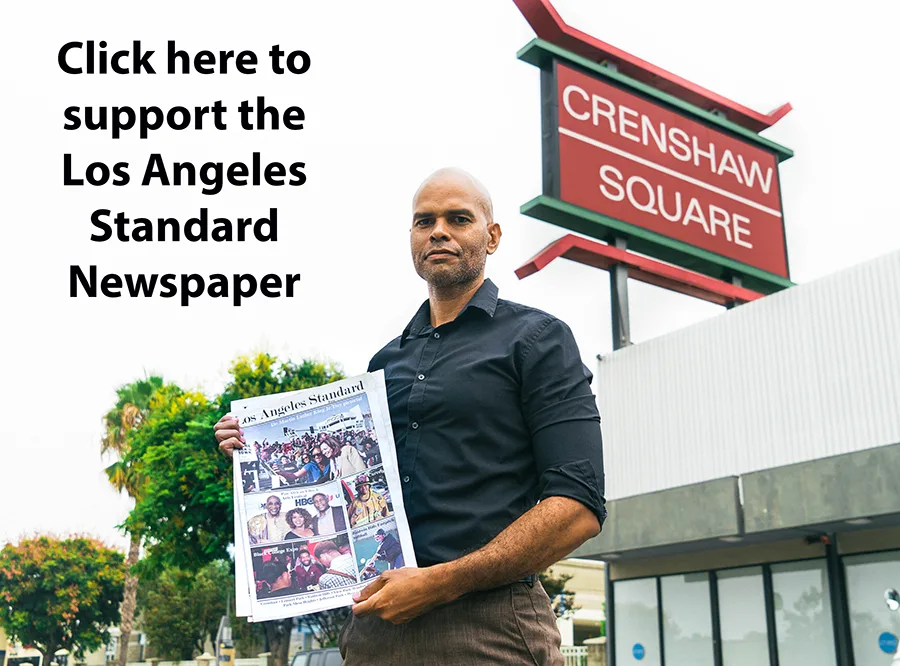
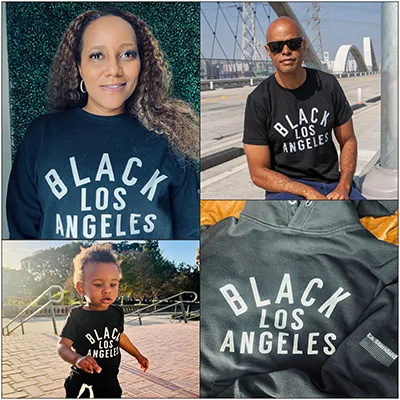
By Jason Lewis
It appeared to be inevitable that California was going to pass two historic reparation bills in late August, but a shocking turn of events has led to heated confrontations within Black communities as the bills were not voted on by the California State Assembly.
Since then, grassroots organizations have held town hall meetings in Leimert Park and Inglewood, and they held a press conference in front of California Governor Gavin Newsom’s office. Leaders within the reparation movement as well as a member of the California Legislative Black Caucus have spoken at the town hall meetings, as well as on Tavis Smiley’s and Dominique DiPrima’s shows on KBLA Talk 1580.
California Senator Steven Bradford’s bills 1403 and 1331 would have created a Freedmen Affairs Agency and a fund for reparations and reparative justice. But the California Legislative Black Caucus members who are in the state assembly could not agree to bring the bills to a vote, which surprised Bradford.
“It had the votes,” Bradford said on Smiley’s show. “I’ve done this for 14 years. We make sure that we have votes before you bring your bill up. We knew that we had the votes. 1403, 1050, and 1331 had just got out of appropriations committee just two weeks prior to that without a single amendment. 1403 was a California Legislative Black Caucus priority bill, and it’s the same bill that they endorsed in May. It hasn’t changed at all. So I was surprised.”
Shortly before the bills were supposed to be voted on in the state assembly, Governor Newsom’s office sent some amendments to authorize the California State University to study the issue further. Bradford declined the amendments and activists have said that they do not want anymore studies.
Bradford said that he has declined amendments from the governor before, and those bills still passed with the governor going on to sign them, so he believes that the California Legislative Black Caucus should have still pushed the bills forward.
The California Legislative Black Caucus received a heated backlash from Black people in California and also nationwide. A week later an emergency town hall meeting was held at Black Lives Matter-Los Angeles’ Center for Black Power in Leimert Park. The California Legislative Black Caucus member who received the most backlash was State Assemblymember Isaac Bryan, whose district serves parts of South Los Angeles and Mid City Los Angeles. To many people’s surprise, he showed up to speak at the town hall meeting.
“I showed up by myself because I don’t hide from my folks,” Bryan told the upset crowd.
“I thought that it was important to show face, whether it’s on behalf of the whole caucus,” he said on DiPrima’s show. “I’ll take that. You have to give folks the outlet to be heard, but also to do my best to try to explain the strategic disagreements and nuances.”
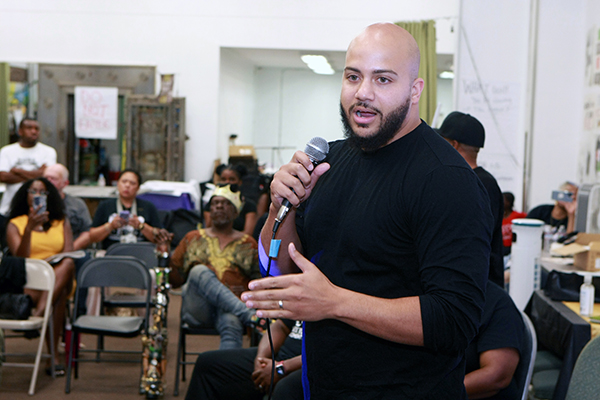
Bryan said that he supported the bills, but the California Legislative Black Caucus operates as a group, and the majority of the group did not want to vote on the bills at that time.
“For us you have to have the majority of the caucus in the play otherwise it was only going to fracture us more,” Bryan said.
“I would of had no problem sending these to the governor but I think when you’re moving in solidarity, not just with your colleagues in Sacramento but within community, and there are disagreements strategically in different places, you’ve got to make the best decisions that you can. In this particular instance there was a decision collectively, by the majority of the caucus, to not move these this year.”
Bryan said that he did not agree with his caucus on the decision to not bring the bills to a vote, and he tried unsuccessfully to get enough of them to agree to have the bills voted on. He decided to stand with the decision of his caucus. But he does believe that the bills will be addressed in the future.
“They will absolutely come back,” Bryan said. “That’s my guarantee and that’s my colleagues guarantee. We are committed to this work. They’re going to come back stronger or with greater solidarity inside and out.”
Kamilah Moore, the chair of the California Reparations Task Force, directed anger at both Governor Newsom and the California Legislative Black Caucus.
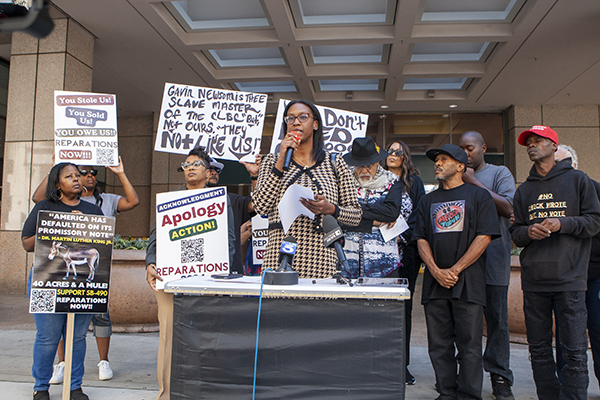
“I am deeply dismayed by the actions of Governor Gavin Newsom and the California Legislative Black Caucus,” Moore said at the press conference in front of Newsom’s Los Angeles office. “After years of work from the task force, we laid out a clear plan for reparations, including the recommendations to create a reparations agency, and a reparations fund for descendants of enslaved people who have suffered from Jim Crow and discrimination in California. Yet the California Legislative Black Caucus worked with Newsom to undermine the efforts by blocking SB1403 and SB 1331.
“These two bills were transformative. We haven’t seen that type of legislation for Black Americans since Reconstruction. Since the Freedmen’s Bureau and since the Freedmen’s Bank, which was torn down by White racists after Abraham Lincoln was assassinated.”
There has been speculation as to why these bills were held up. One activist who has been pushing for reparations for several years said that issues with the bills came up after the Democratic National Convention, and that leaders within the party may have felt that this was not a good time to push for reparations with the Presidential election coming up. The activist’s response to that was that they never think that it’s a good time for reparations.
Attorney and reparations activist Cheryce Cryer also sees issues within the Democratic Party. She spoke on this at the town hall meeting in Leimert Park and also on DiPrima’s show.
“I think that some people on the Democratic side of the ticket are scared,” Cryer said. “It’s not popular with them. There are many things that are not popular. Open boarders is not popular with them. Abortion is not popular with them. Continuing to fund Ukraine is not popular with them. And even to some extent now Israel. But what are we seeing this week? Executive orders to give more weapons or support to Israel. There have been many executive orders. Biden has gone around Congress to give more weapons to Israel in 2024. You can go around Congress to give us reparations because you need to take care of home first before you go out and take care of everybody else.”
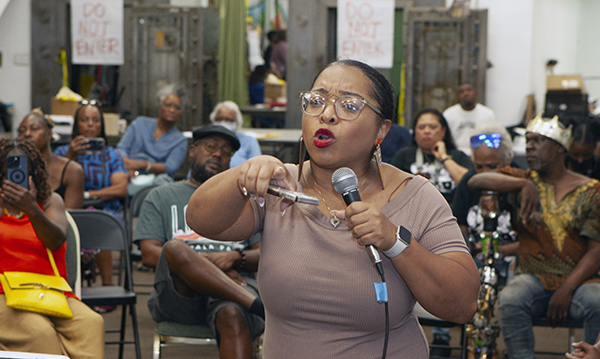
Cryer has been advocating for the reestablishment of the Freedmen’s Bureau since 2020. She has done many presentations on reparations, and she has given recommendations to the California Reparations Taskforce and to local politicians. While she is upset with members of the California Legislative Black Caucus for not bringing the bills to a vote, she is encouraged with the progress that the grassroots organizations have made since the bills were not voted on.
“I think that we’re in a place where we’re better than we were when we went to the capitol on August 31,” Cryer said. “We now have national attention on what is going on with reparations, or what’s not going on with reparations in the state of California. We are having a national and international discussion about what is next.”
To get involved with the reparations movement in California, follow the Coalition for a Just and Equitable California (CJEC), the Lineage Equity & Advancement Project (LEAP), the National Volunteer Council of Freedmen Affairs (NVCFA), the National Assembly of American Slavery Descendants (NAASD), Africatown Coalition, and Black Lives Matter-Los Angeles.

